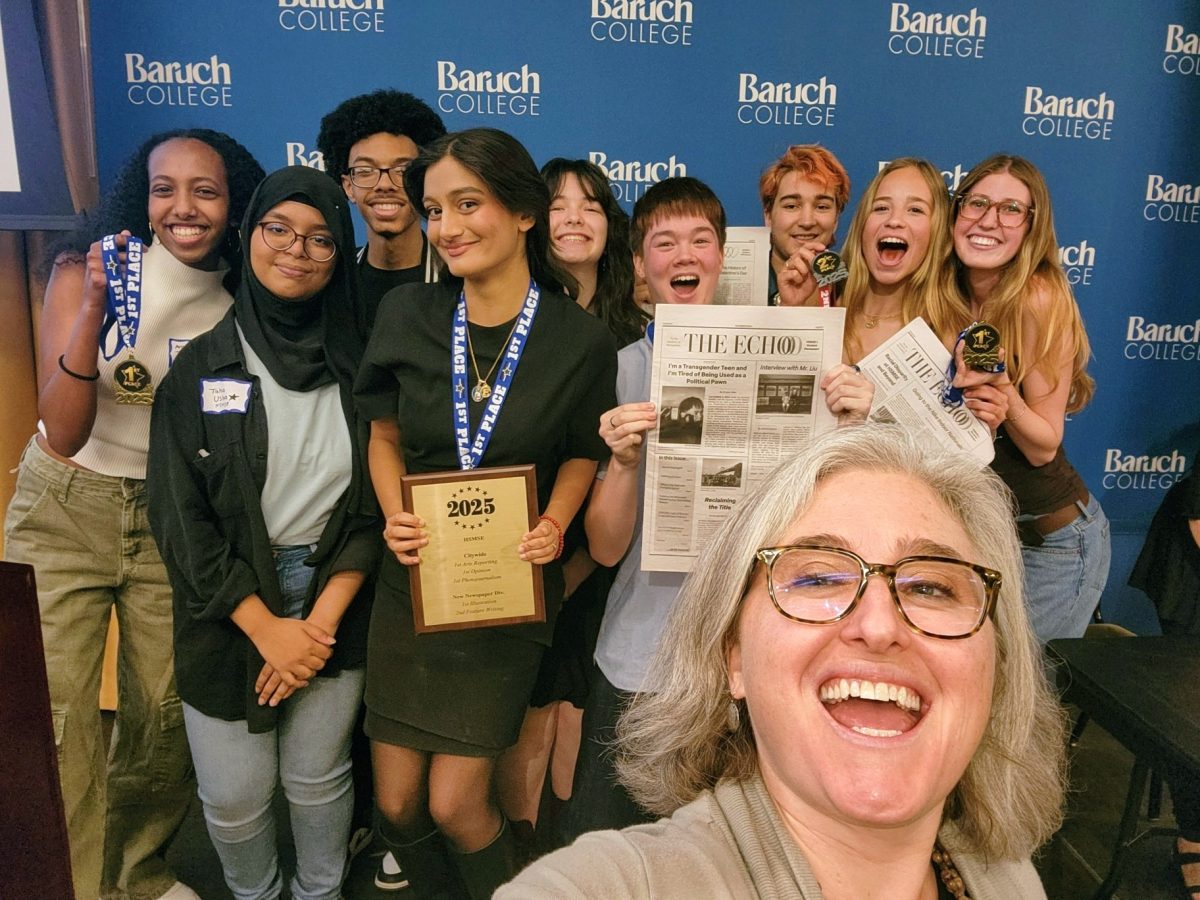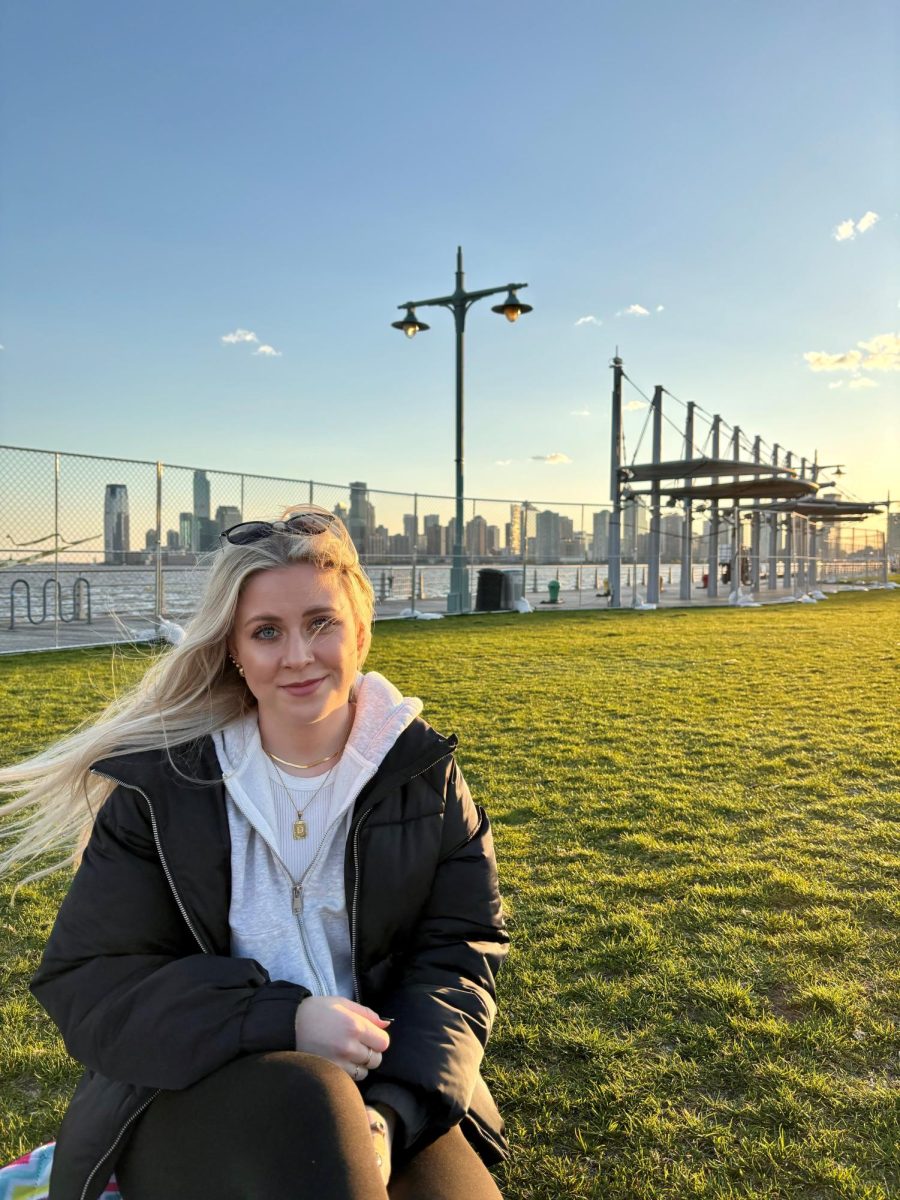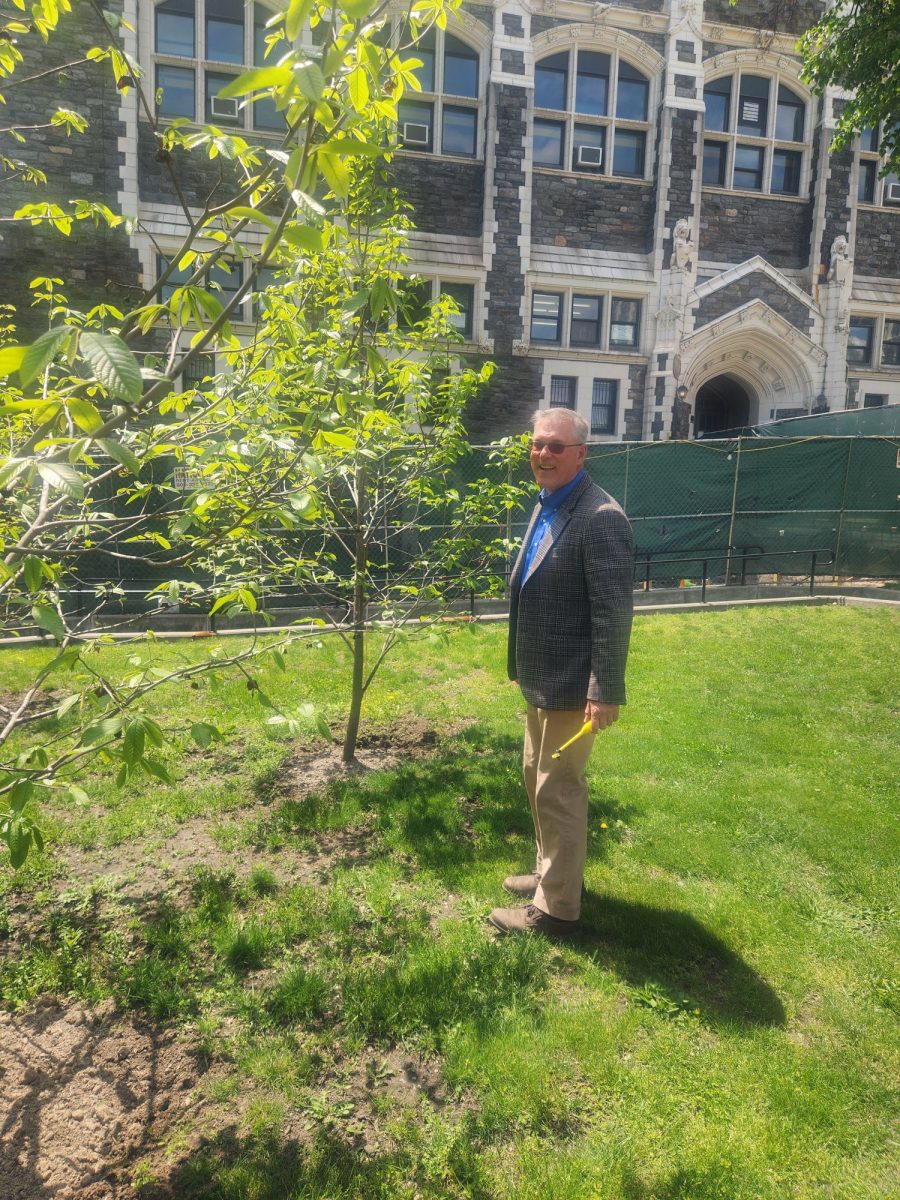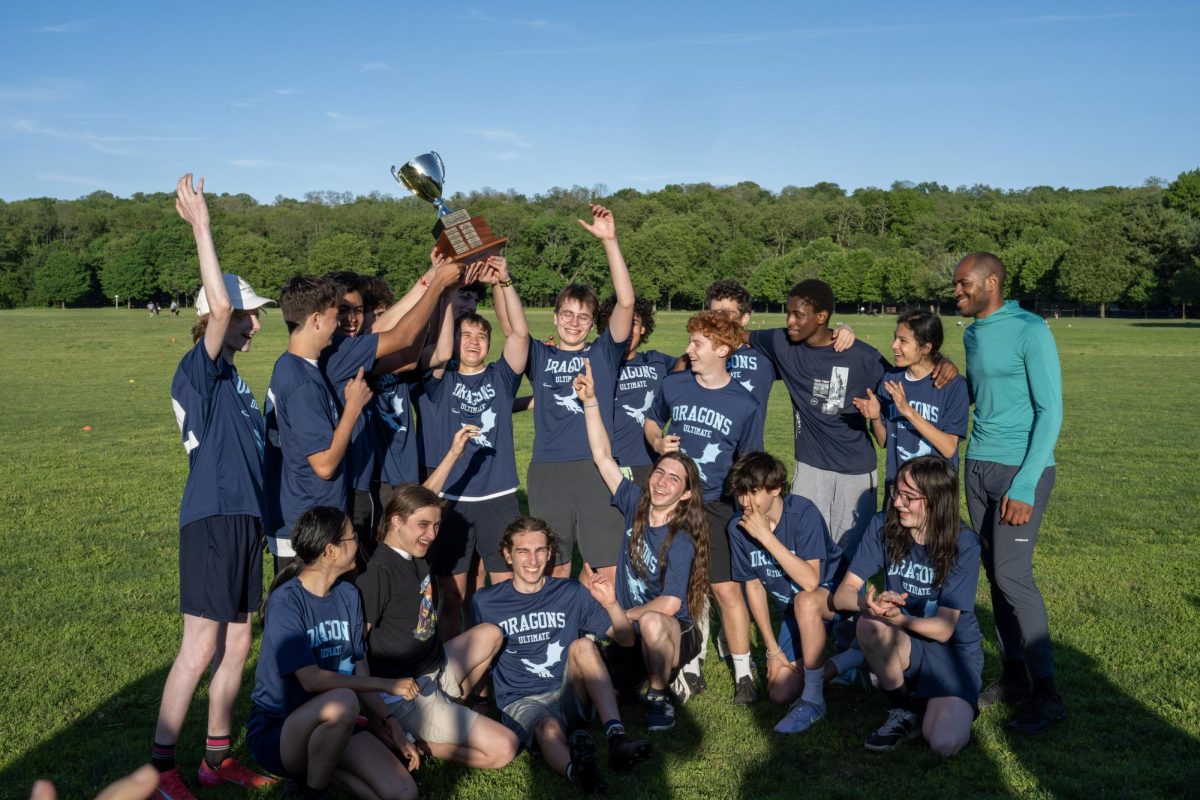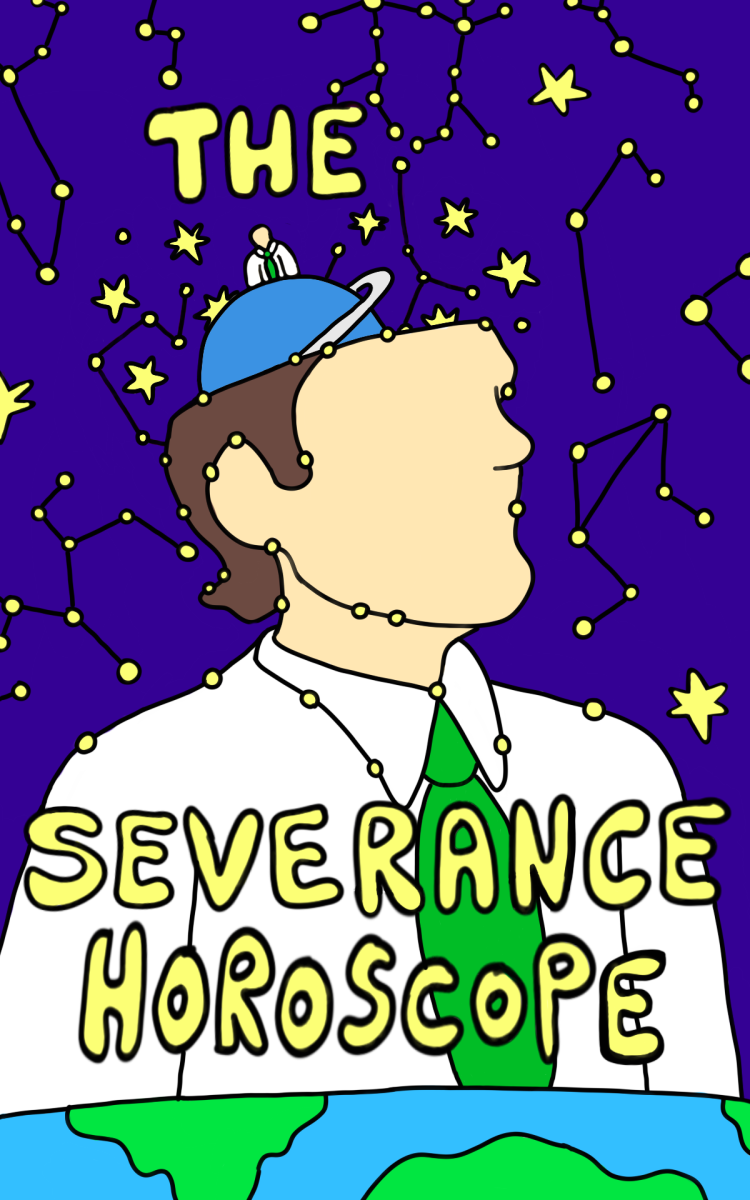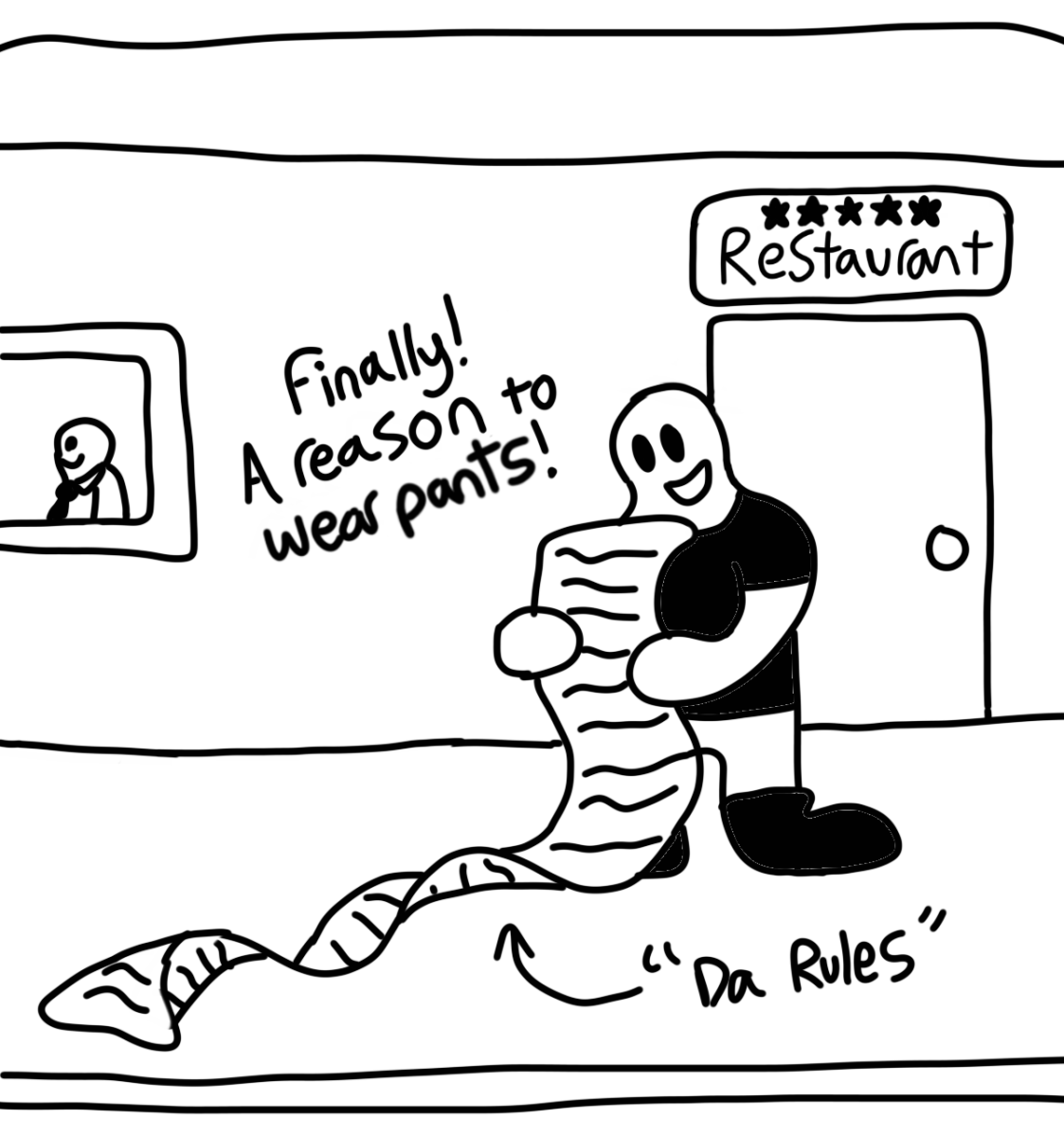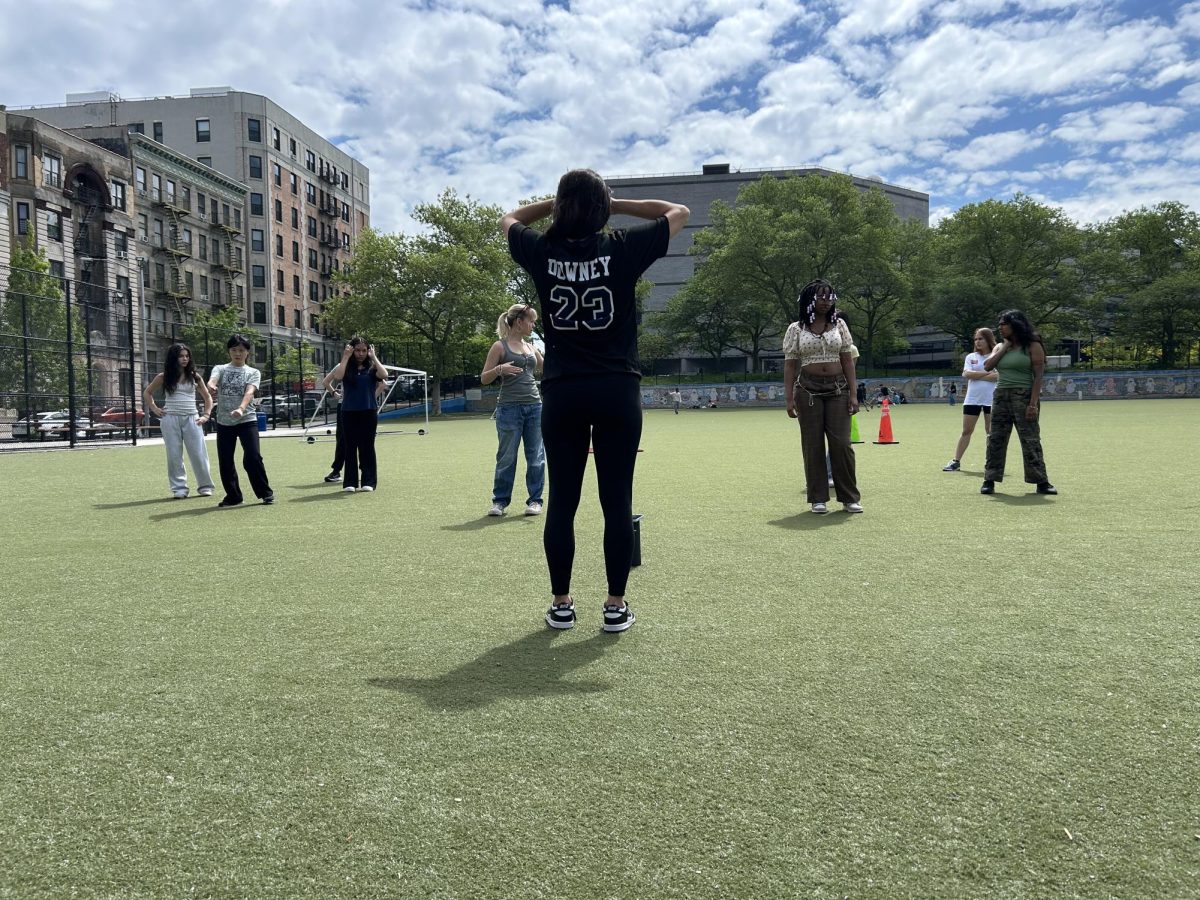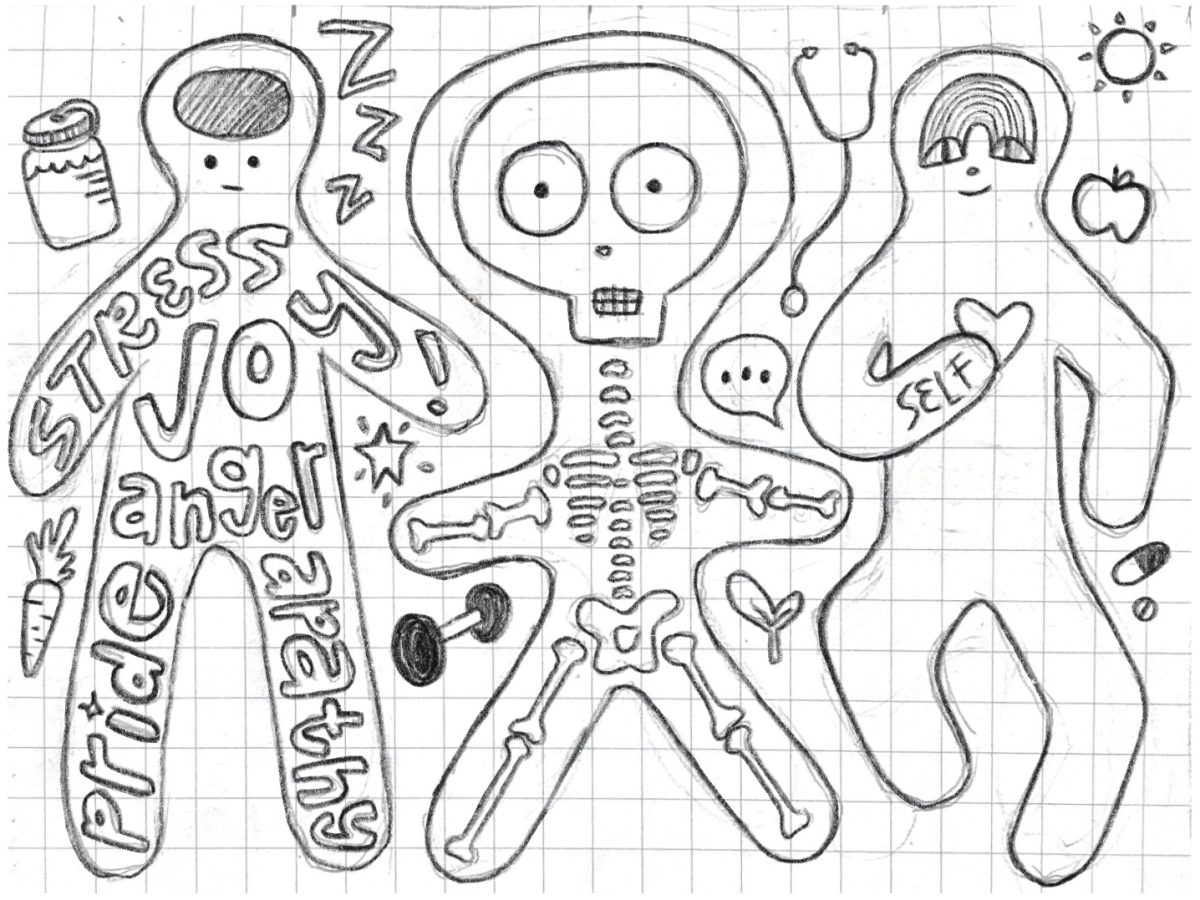Both physically and metaphorically, Mr. Henning is a pillar of HSMSE. He is a true engineer—practical, concise, and calculated—with a room full of what the untrained eye might call “junk.” This interview is a profound glimpse into the life of Mr. Henning: famously a former Silicon Valley employee and a shockingly skilled dancer. Oh, and how could I forget? He also happens to be the ringleader of our notorious track and cross country team, the Flying Dragons.
This interview has been edited for concision and clarity.
AS: Which class is your favorite to teach and why?
TH: Physics. I love telling the story of physics and how ideas develop, how it all connects to the real world and explains a lot of things that people experience every day.
AS: Many view you as the Flying Dragons coach first and a teacher second. Is this true?
TH: Certainly in terms of hours per week, yes. We have been the most successful small-school team in the City of New York for the past ten years. I really don’t know why, I just try not to mess it up. We take non-athletic kids, for the most part, and inspire them to be as good as they can be and support each other as much as they can, and creating an environment where that can happen is one of the biggest accomplishments of my life. It’s kind of magical.
But I’m equally fascinated by physics and physical things and mechanical things and electrical things. Physics comes more naturally to me, whereas I’m not a lifelong track fanatic. Becoming a track coach in itself was a lot of self-education on my part. Also, there’s so much human drama that has to be managed, and that takes a lot of time. There’s no human drama in a physics class. The newest physics I teach is 100 years old, so it’s all very settled science, a lot easier, which is why it takes a lot less time. Though I do keep on the newest developments.
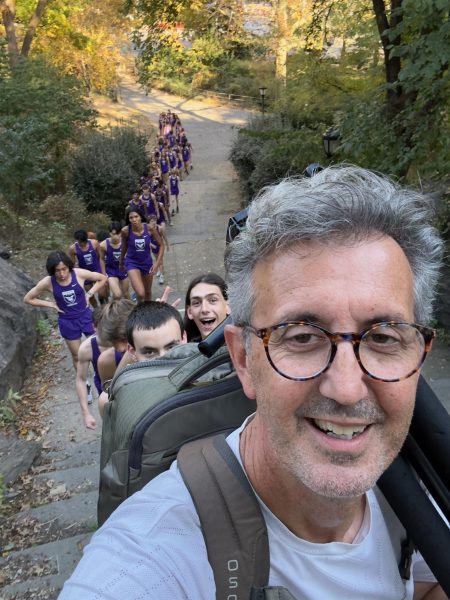
AS: What do you do in your free time?
TH: I like to cook, I cook at home a lot. These days I’m doing a lot of Mediterranean cuisine, which is a little different than I’m used to. I make my own bread and a lot of things like that.
It’s now getting warm enough that I can go back to sailing on the Hudson River, which I like to do once a week if I can. There’s a sailing club I belong to that has boats. I also run, bike, and swim as much as I can, just for fitness.
AS: Describe yourself in three words.
TH: [Long pause]. I’m gonna pass on that one.
AS: How do you determine your outfit for the day?
TH: It’s based on what I’ll be doing, if I’m coaching or not, what’s the weather, and what’s clean. I’m thoughtful about colors and patterns, I was a designer once upon a time so these are things that matter to me.
AS: Is there a certain style you go for?
TH: You might call my style L.L. Bean, if that has any meaning to you and your readers. I spent a lot of time in Maine and associate it with that kind of style and material.
AS: Who is someone you’d like to have dinner with?
TH: I’d like to have dinner with Steve Jobs.
AS: Of course! Tell me about your love for Steve Jobs.
TH: I studied design at Stanford, among other things, and he was the person who most took to heart the values that I was taught there and applied them to a very successful company and many products. He was a visionary in a lot of ways.
AS: What would you ask him?
TH: What’s next?
AS: What’s something you’re proud of?
TH: I’m proud of the Flying Dragons. I’m proud of being an engineer who gave that all up to be a public school teacher, for almost thirty years now. Next year is my thirtieth year. Sometimes I count the money I didn’t earn, which was surely a few million dollars. But that’s okay, there are more important things in life.
AS: Do you feel like it was worth that sacrifice?
TH: Sure, absolutely.
AS: Tell me about your history with your motorcycle.
TH: When I was 16, I decided I wanted to buy a BMW motorcycle. My parents, who were divorced and had not spoken in the last year, decided to have a meeting. This was important enough that they had to agree together that they didn’t support my desire to have a motorcycle, so they ganged up on me and I was not allowed to get one.
About 20 years later, I had been a teacher for five years, and was talking to a student who was going to buy a motorcycle. And I just had a sudden flash of inspiration. Like, wait, I don’t need permission anymore, I’m 36 years old and have a job.
I bought the motorcycle in October of 2001, and then that following summer I proceeded to drive around the United States alone. A big circle, counter clockwise, and I did it in 45 days. I got almost all of the perimeter of the country.
AS: Was that an enlightening experience?
TH: It was a very weird thing. I look back on it and I’m like, “Why did I do that?” I took very few pictures, oddly. I have no desire to repeat it, a lot of strange things happened along the way. But it was cool.
And then I brought it [the motorcycle] to New York City when I moved here, but quickly learned it was a mistake. Eventually it got kind of damaged and I decided to give it away to charity.
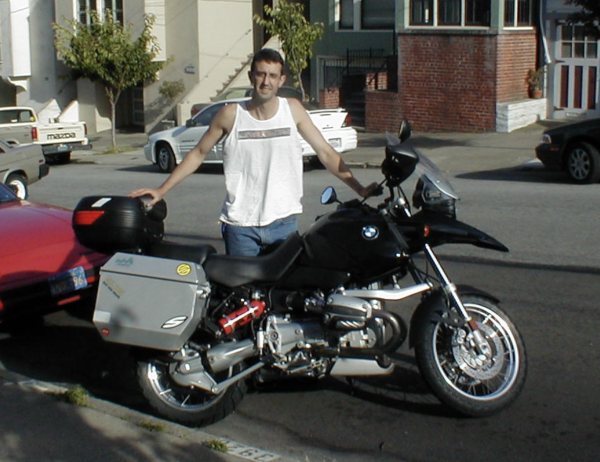
AS: What were you like in high school? Were you part of any cliques?
TH: I was on the fringe of the popular crowd, definitely fringe … I was not part of it. But I knew all of those people, I was the photo editor of my yearbook. I’m not somebody who was invited to parties or dating or any of that stuff.
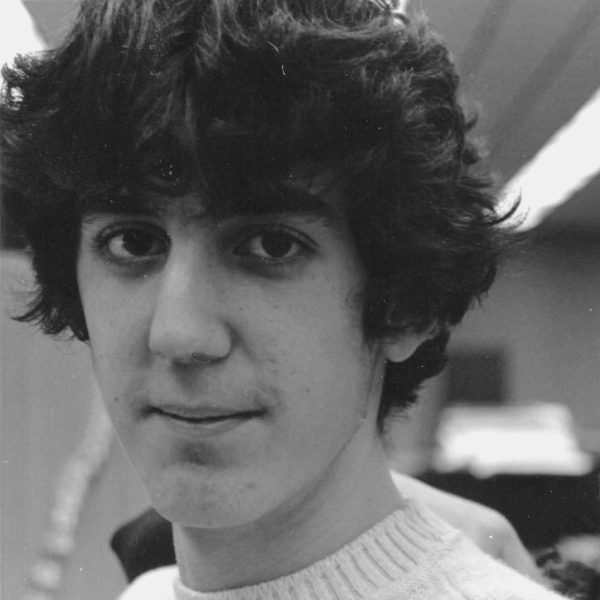
AS: What do you think is the most surprising thing about yourself?
TH: To others?
AS: Yes. Or to yourself.
TH: Well it’s been a long time since I made a big deal out of being gay, but I guess because I’m 6’6“, people associate that with being heterosexual. But maybe not your generation, I don’t know. It’s not like I’m some sort of big tough guy with tattoos and a beard, so I don’t know if that’s a surprise or not. I founded the GSA here. On paper I’m the advisor, but I don’t really do that much advising.
Actually, the most surprising thing about me is that I dance very well.
AS: Really? Tell me more. Any genre?
TH: Just popular stuff, I don’t actually like a lot of what they play at prom, but music from when I was going to clubs, which would be from about the ’90s. For someone my height and my age, I dance very well.
AS: What is your biggest fear?
TH: Not being able to teach or coach because of my age. It’s not the case right now, but people do get old and do fade. The concept of retirement is meaningless to me. I’m 60 years old, so there are many teachers who are like “It’s time to go,” but it’s such a foreign concept. Isn’t retirement essentially dying?
AS: I couldn’t tell you.
TH: Yeah, you don’t think of these things, but a lot of people imagine a life after they stop working. I would be bored to death, so I’ll hang around until they kick me out.
AS: What was the most disillusioning thing to ever happen to you? Something that just rocked your world.
TH: Long ago, I encountered my boyfriend with another person. He was going out with someone else at the same time as me, and I saw them together. That took a long time to get over. I was basically in a part of town where I wasn’t supposed to be that day, and it was like, oh, I see. [Laughs].
AS: Do you dream a lot? Any recurring themes?
TH: Sure, but not like I have great stories to tell. They’re sort of trivial dreams, and I mostly forget them.
AS: Now we do a rapid fire round of favorites. What is your favorite fruit?
TH: Banana.
AS: Movie?
TH: 2001: A Space Odyssey.
AS: Band?
TH: I guess I’m still stuck on The Beatles.
AS: What song or album is your favorite?
TH: Let It Be.
AS: Instrument?
TH: Saxophone.
AS: Artist?
TH: Ansel Adams, he’s a photographer.
AS: Book?
TH: You know the answer to that. [For those not in Innovation and Design, it’s Zen and the Art of Motorcycle Maintenance].
AS: Place?
TH: The coast of Maine.
AS: Sandwich?
TH: Meatball sub.
AS: President?
TH: I guess Jimmy Carter.
AS: Animal?
TH: Cat.
AS: Have you ever had one?
TH: I did, until I got allergic to them.
AS: What was your cat’s name?
TH: Tiger.
AS: What do you admire most about HSMSE students?
TH: I admire that they listen and try to follow through. Many of them ask great questions. They’re persistent, they don’t give up.
AS: Do you have any advice for us?
TH: My advice is to try, but know when to stop trying. And just do it. Just like me, MSE students need to learn how to think a little bit less, and do a little bit more.
AS: Alright, that’s it!
TH: Thanks for profiling me.
AS: Thank you for being subject to my interrogation. It’s good practice for when DOGE comes after you.
TH: I do wonder how many MSE students will end up working for DOGE.








